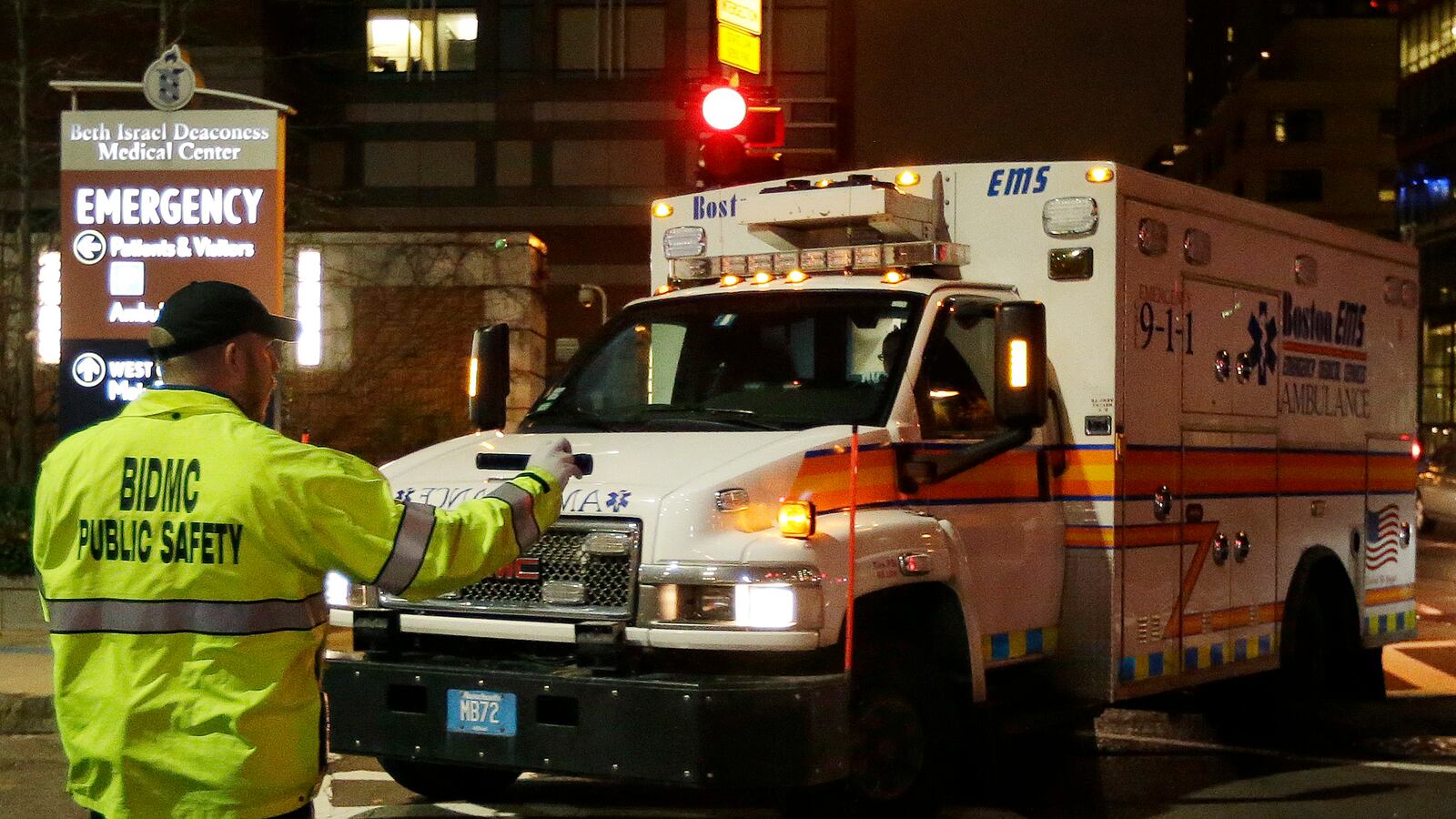Staff at Beth Israel Medical Center in Boston faced a difficult situation Friday night when accused Marathon bomber Dzhokhar Tsarnaev was brought to their emergency room for treatment. By report he had sustained two gunshot wounds and had lost a significant amount of blood—not an unusual clinical situation for an urban ER, where stabbings and bullets can seem as common as a sprained ankle. But just a few nights before, these same doctors and nurses had cared for dozens of people, some critically ill, many missing limbs, who were injured by bombs said to have been planted by the exact same person.

With his ER appearance, Tsarnaev provided a too-close-for-comfort, right-here- and-right-now example of a well-worn pastime among doctors and nurses—the thought game of "deciding" what we would do if a villain, perhaps John Wilkes Booth, broken leg and all, hobbled into our office seeking care. For Booth, Dr. Samuel Mudd answered the call and set the assassin’s leg, but soon served prison time after conviction for conspiracy in the assassination. Though he was pardoned by President Andrew Johnson, the conviction remains in place despite decades of Mudd family attempts to overturn the judgment. As recently as 2003, their plea reached the Supreme Court though ultimately the judges refused to hear the case.
The legal end of the dilemma facing medical staff at Beth Israel is clear: the emergency room is compelled to treat everyone who enters the doors in need of emergency care. In 1986, Congress enacted the Emergency Medical Treatment and Labor Act (EMTALA) to assure that patients in need of emergency treatment receive medically appropriate attention. This law prevented patient dumping—the convenient refusal to care for the indigent demonstrated by certain hospitals looking for an exclusive, cash-and-carry clientele. Doctors and nurses, as employees of the hospital, have agreed to follow the hospital’s rules as a condition of employment. In other words, though the issue of a morally objectionable patient has not specifically addressed, the law provides no room for personal choice—hospital staff must treat anyone including John Wilkes Booth.
But any law is really only part of a larger issue—the real question here is how it feels to treat someone who repulses you. Not just an annoyance—anyone training or working in an urban area treats plenty of the very annoying: drug dealers, pimps, prostitutes, thieves, and thugs, as well as embezzlers, defrauders, money launderers, and insider traders. Rather someone Booth-like, whose very right to exist strikes a passionate chord.
The closest I have gotten to this dilemma was some years ago, when a certain former president was hospitalized and I was perhaps going to become involved in his care. Discretion prevents my indicating which disgraced-by-his-resignation former president I am referring to exactly, but he was being treated at a hospital I worked at then. I was told I would be overseeing an aspect of his care in a few days as the weekend cover guy. It caused me serious pause. For someone of my generation, the hatred felt for this particular person, who many felt manipulated the Vietnam War for political gain, among other problems, was on a geologic scale. A giga-Cheney’s worth.
I spent a lot of time trying to sort out what to do. His need for my care was in no way emergent; countless others could provide the simple check-in, hey-what’s-up sort of treatment my weekend pinch hitting would give. And yet, it seemed important not to duck him. I got carried away imagining myself saying hello to him, then yelling about what a disgraceful person he was, how he had introduced a poison into politics that has never left, how he had destroyed the spirit and optimism of an entire generation. The idea itself became so intoxicating that I convinced myself I should agree to the weekend work just so I could rip him a new one.
Of course when the weekend came, the situation was considered too high profile to allow a youngish pisher such as myself to become involved in, and the request for my weekend contribution was rescinded. So I never truly made up my mind about what I would do; I suspect though I would have acquiesced and quietly seen the patient. I therefore have never experienced the confusion of caring for someone who profoundly incited my temper. And my example was of someone whose “crimes” were a matter of political opinion, amplified perhaps by the ardency of youth and the contemporary ethos. He had not set off a series of bombs, killing and maiming innocent bystanders in broad daylight.
It is likely that the Beth Israel emergency room staff reacted with little sturm and drang to the medical problems at hand—blood loss, risk of infection in the open wounds, electrolyte disturbances—and patched Tsarnaev up efficiently. If he were sent to the operating room, the surgeons too would have focused on the technical task before them without thinking too long or too hard about the person underneath, stretched out on the table.
It is now and in the days ahead, as the adrenaline that lifts every emergency case subsides and Tsarnaev recuperates slowly a few hallways or floors away from those injured by his crime, that the wear and tear on staff will be felt. Then, dressing his wounds, giving him antibiotics and pain medications, helping him up and out of bed may come to feel infuriatingly, if not morally, wrong. A sense even may arise from some staff that they, similar to the charges that met Dr. Samuel Mudd, are abetting an enemy and therefore are somehow complicit in his crime.
They surely are not. Similar to the provisions of the Third Geneva Convention, which dictate that even the most heinous war criminal must receive humane treatment, every ill person must receive appropriate medical care. But this approach should not arise from the fact that it is our contractual duty under the law and we want to keep our jobs. Rather, providing drama-free, professional care even under extreme personal duress demonstrates our one priestly quality—our humanity, the single trait that distinguishes us from the person whose inhumane actions have caused so much sorrow.





